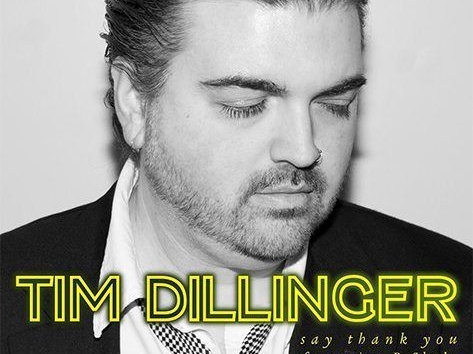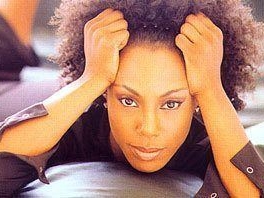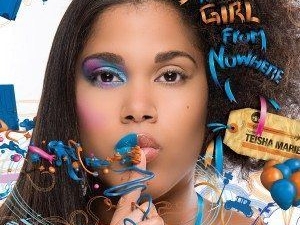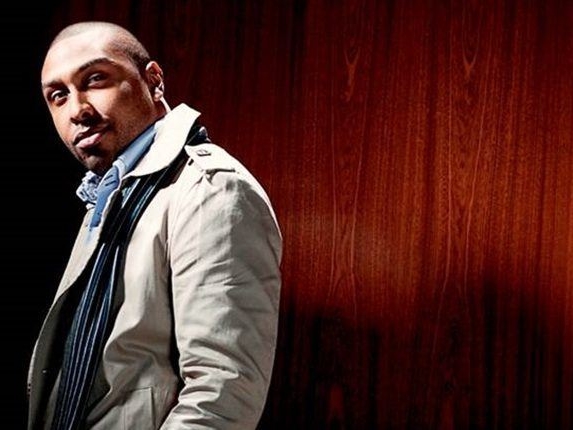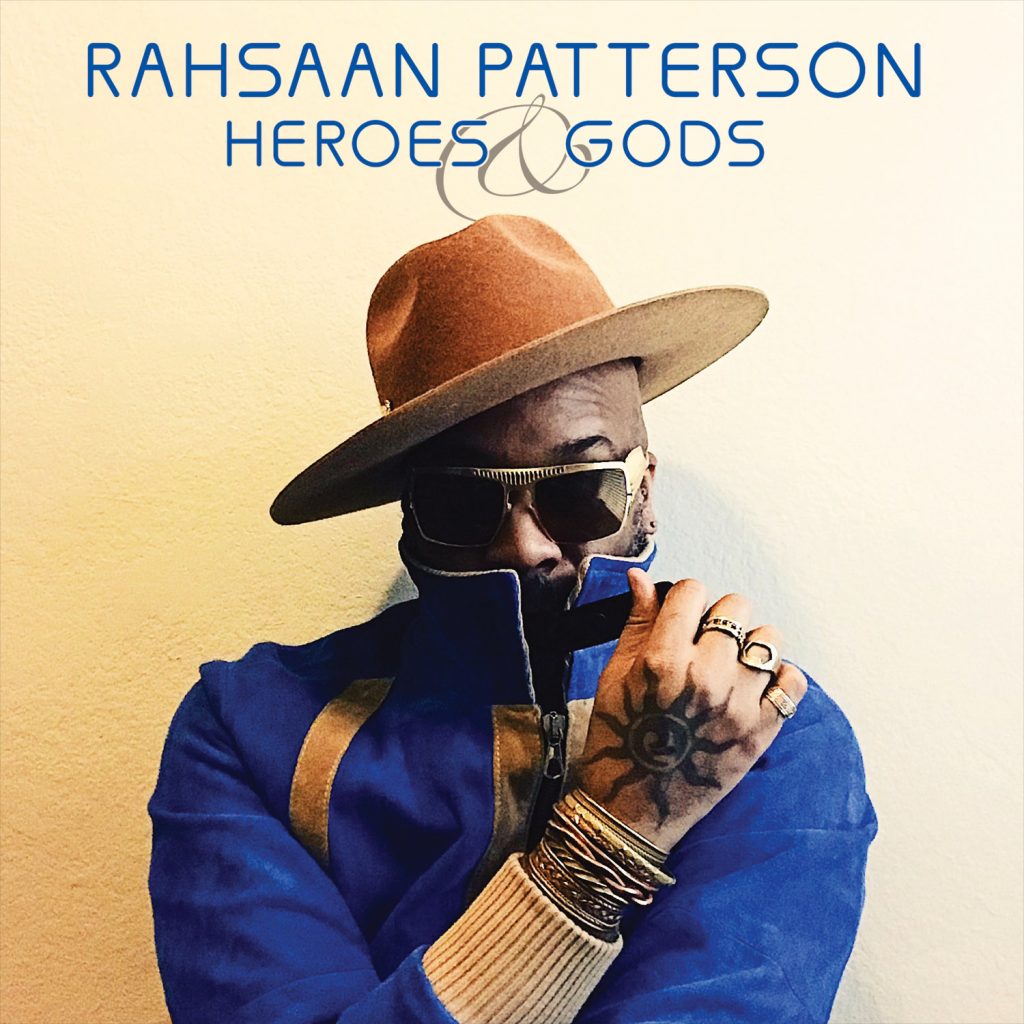
Rahsaan Patterson has been in the entertainment industry for nearing 35 years. During that time he has carved out his own authentic path and in doing so secured the unwavering loyalty of those who support him… even when he goes several years in between projects. This month Patterson will release Heroes and Gods, his first new album in eight years, on Shanachie Entertainment. He talked with us about the new music, his musical hero Luther Vandross and lessons of life he’d tell his younger self.
Read below and enjoy.
GFM: It’s been 8 years since your last album. Can you talk about why [it took] so long? Why the time lapse and [talk about] the journey of making this album.
RP: It’s never intentional in terms of the amount of time. I didn’t intentionally take 8 years to make this next record. Ultimately, my creativity is sparked when it’s sparked. Whenever that happens that’s when I ensue upon making music. Also, life happens for artists just as it does for most people. I’ve suffered the loss of close family members every year for the last five/six years at this point. With that I need time to grieve and I need time to mourn them and celebrate their lives as well, and however long that takes is however long that takes. I just allowed myself that time to live and experience life and relationships and people than to come back to the table ‘safe’.
Heroes and Gods
GFM: Heroes and Gods is the name of the album. I’m intrigued by that name. How did you arrive at the title of the album and the track?
RP: Because of the song. The song came first. Even before the song was completed the initial part of the song that came to me was the lyrics in the chorus, ‘If you’re looking for us, search in the stars. Know who we are, heroes and gods. Beautiful ones, made of the sun. That’s who we are, heroes and gods.’
When that came to me when I was working on the track, initially it just struck a chord and it was very powerful to me. Not only is it a reminder to me of the power that I possess, it’s also a reminder to our people of color, to our LGBT community, to all of us who have suffered through injustices and still come out triumphant and have the power and the ability to influence people and younger generations. It’s absolutely a reminder for younger generations to always remain aware of that power that they possess and where we come from.
Sent From Heaven
GFM: The first single is “Sent From Heaven” and if ever a song sounded liked love, it’s that song. Talk about that song.
RP: Love songs are very easy for me to articulate and write because that’s who I am. As a singer and songwriter and a human being in general, love is something I enjoy the feeling of. I enjoy basking in it. I enjoy receiving it. I enjoy giving it. I learn and grow from the pains of it… as we all should. So, that’s why I believe it resonates with people so much. Because when you do know what it feels like to suffer though the pains of it, you rejoice that much more when you grow from it and you receive it and you make different choices in relationships to operate differently. To not put yourself through those same situations that caused the pain in the past.
For me, that’s just part of growth and progression. Love is one of those mighty things that we consistently are learning about, experiencing and walking through and appreciating more and more through the experiences of love and relationship with people.
That was just one of those songs where I was stimulated and triggered in a positive way. It just brought out just that beautiful aspect of what love is, what it feels like and the promise of it.
Bronx Boys
GFM: I know Luther Vandross is an influence of yours. You have a cover [“Don’t You Know That”] that you started performing first. Of all of the Luther songs, what made you put that one on the album, or even start performing it first?
RP: That has always been my favorite Luther Vandross song of his entire catalog. I remember being a child when the Never Too Much album was released. I loved “Never Too Much”. I loved “A House Is Not A Home”. I loved all the other songs on that record, but as a kid “Don’t You Know That” just was the jam for me. It still is a jam for me. There’s something very seductive about the song in comparison to a lot of his other tunes which are phenomenal. That one just has a seductiveness that appeals to me still. The arrangement, the color of the song itself, his delivery, the lyric… I love the lyric. The opening line stated, “I got your love. You need to look no further.” Like, that’s it. We’re done. You’re good. I got you.
I started covering it in the show because it is one of my favorite Luther songs. The response was always very positive and still is when I perform it. I’ve always been apprehensive to rerecord songs that are classic. For the most part I feel that some songs don’t need to be touched again on record, because the artist that initially did them did them justice and they need to go no further than that. I’ve covered Sade, “Love Is Stronger Than Pride” in my shows. People have always asked me to rerecord that one and that one also was one I didn’t feel I needed to touch.
As far as recording it for my record… the Luther song… I wanted to pay homage to him. I wanted to tribute him and really showcase not only his influence on me but the parallels of our recording experiences. Also, being from the Bronx… both of us. Starting out as background singers and even prior to that doing jingles and commercials. I did the same thing. So, it was a similar trajectory in terms of stages of our solo recording careers. I’ve always felt a connection to him, 1. being a Bronx boy and [2.] the upbringing in that part of the US… in that part of New York and his uniqueness. There’s only one Luther Vandross.
There’s been several attempts at replicating his style and tone, but no one’s ever fully succeeded and no one ever will. It’s like, you can’t. There are carbon copies out there. I’ve actually seen one cat here in LA who sounds a lot like him and he does shows that tribute Luther. He’s good in that regard. But in terms of Luther’s songwriting, his production, his arrangements of background vocals… I mean just exquisite and classy. I learned a lot from him listening to his music and the way he delivers a song. He was also a cat who could cover someone else’s song and make you feel like it was the first time you’d ever heard it. He made it his own.
So, in recording “Don’t You Know That” for this record, I wanted to tribute him. But, I also wanted to pay my respects in showcasing also that its the same song, but I can arrange it and color it to where it suits me. I’m not trying to duplicate what he did. I’m doing my best to pay homage to him, keep the integrity of the song but make it my own. I believe that’s what I did.
Veteran of the Game
GFM: You are coming up on 35 years in the entertainment industry. Is there anything that you would tell your young self?
RP: I would tell my young self, as it relates to heartbreak, that it is okay to feel it. Don’t linger in it because it will pass. It will absolutely pass.
GFM: What would you tell yourself about your career [and] about the industry?
RP: I wouldn’t necessarily tell myself anything about the industry, because I started so young and I was able to make sense of the demands of it as a child because I had to . Starting out in television, music, theatre and acting simultaneously there was a lot of information there. The industry is the industry. Business is business.
Again, I made sense of it early. I’ve always been cognizant of what I was into. I always understood even as I transitioned from the television part into the background vocals and singing behind one of my friends who was on the show with me during her second album and touring with her. I consciously made the decision to sing backgrounds also so that I could get a bird’s eye view of what she had to deal with as a solo artist in the recording industry.
I got that. So, once I stepped into the role of [a] solo artist I knew what to expect. I knew what those demands were also. So, it’s not so much that I would tell myself anything about the industry, ’cause I know that game and it is what it is, you know?
But, in terms of life and heartbreak– not in just relationships, but in death also– feel it. Go through it. Don’t linger in it and it will pass.
GFM: Your fan base has absolutely rode with you. Talk about what it feels like and what it means to you to have fans that have just held on to you for so long.
Well, it’s very much like growing up together. For me it’s similar to having friends since elementary school and then you’re still friends through high school. Then, you’re still friends through college, and then you’re still friends when everybody starts to have their own families. That’s what it’s like. That’s how I relate to it and that’s what it makes me feel. It makes me feel like these people have been my people for all of these years and we’ve grown up together.
GFM: What is your definition of Grown Folks Music?
RP: [laughs] Music made by grown folks.
RELATED POSTS
August 16, 2013
GFM Spotlight Interview: Tim Dillinger
June 17, 2011
GFM Spotlight Interview – Adriana Evans
August 22, 2013
GFM Spotlight Interview – Teisha Marie
September 20, 2011
GFM Spotlight Interview – Noel Gourdin
November 24, 2017

